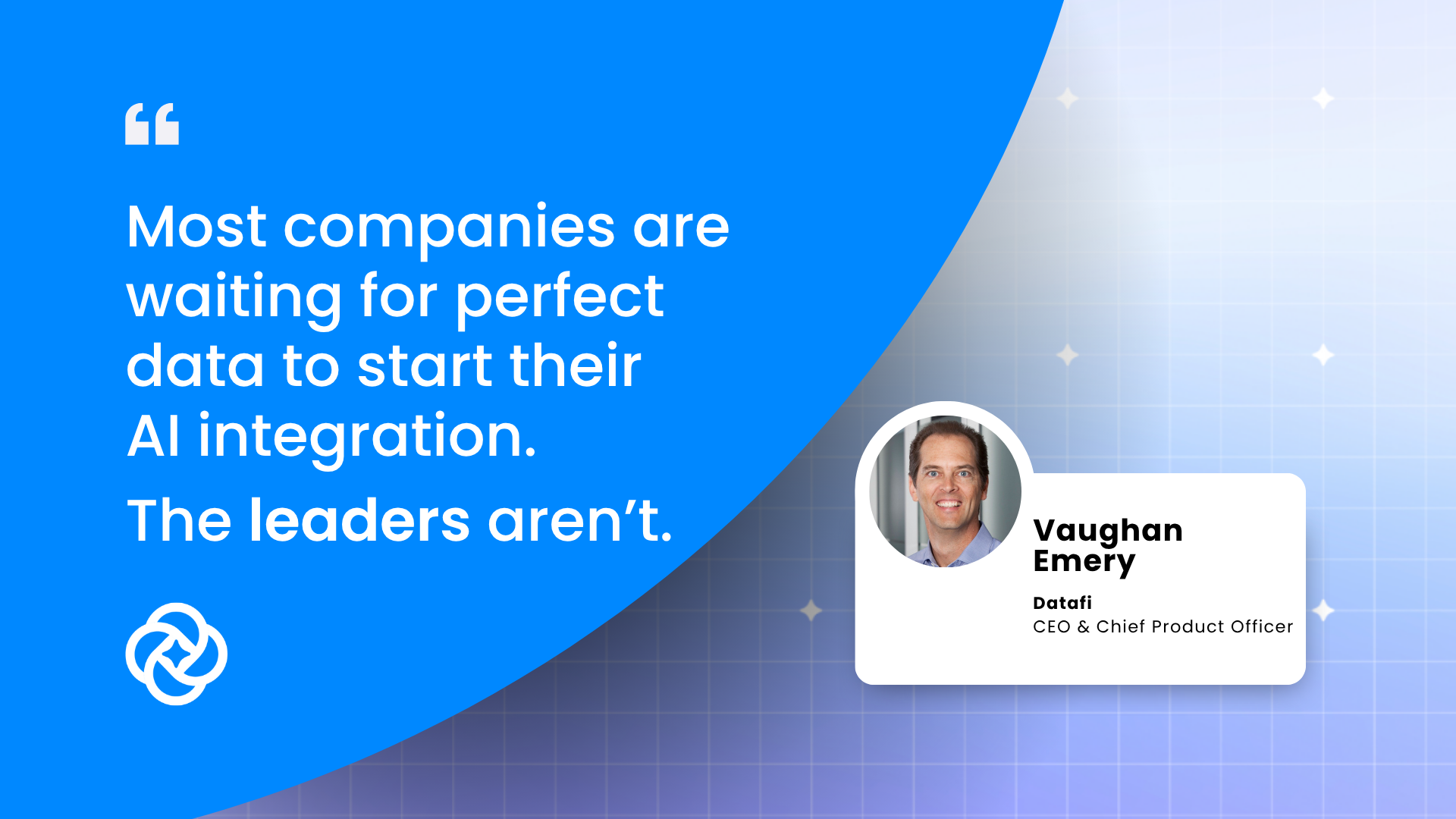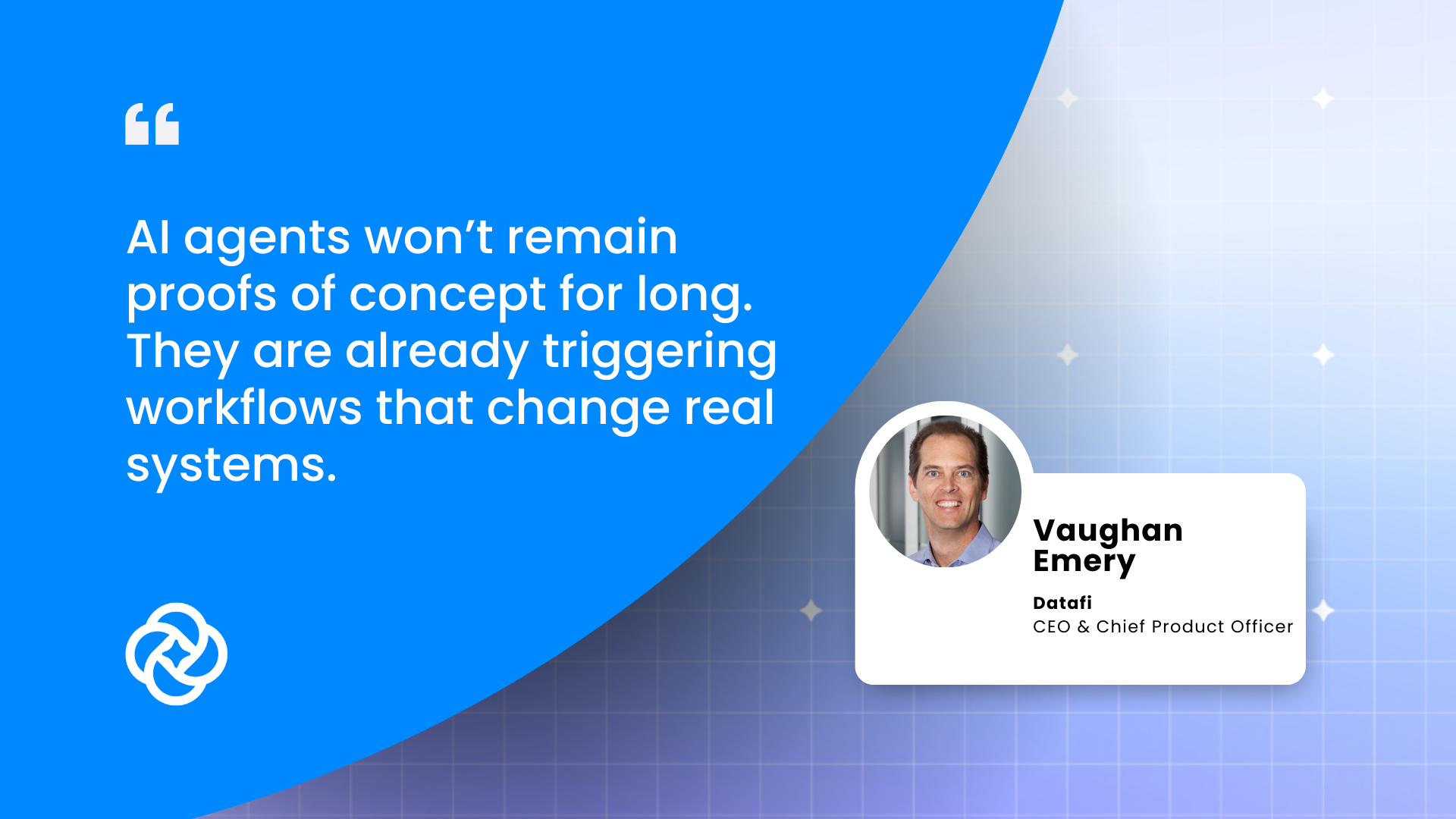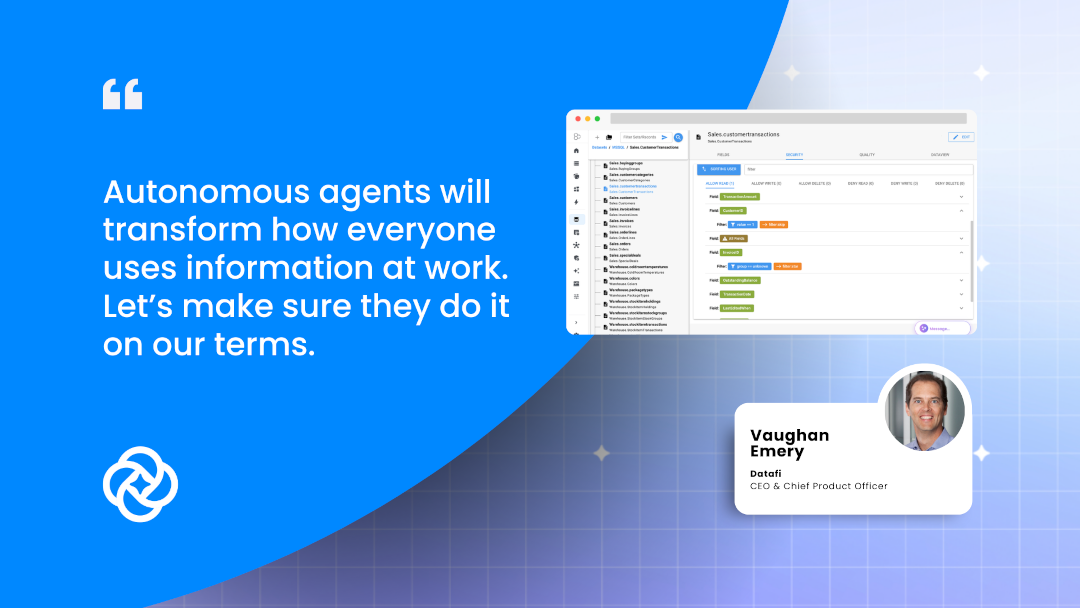Datafi Resources
Sorry, we couldn't find any results matching your search.
Don't give up! Check the spelling or rephrase your search query.
Sorry, we couldn't find any results matching your search.
Don't give up! Check the spelling or rephrase your search query.
No More Paper: Datafi Agent End to End Automation Demo
Video
Customer story - Oak Harbor Freight Lines' Journey with Datafi
Video
Data Chat: The interface for interacting with your enterprise data
Shorts
Data Cards by Datafi: Persistent Answers, Shared Insights
Shorts
How Datafi’s Data Catalog Powers Enterprise Data Governance
Shorts
How to Organize and Format Data to Get Insights Using Data Views
Shorts
Sorry, we couldn't find any results matching your search.
Don't give up! Check the spelling or rephrase your search query.
Get started with Datafi today
Datafi is an intelligent agent for work. Making data accessible and meaningful for everyone, anywhere.
Thank you! Your submission has been received!
Oops! Something went wrong while submitting the form.













